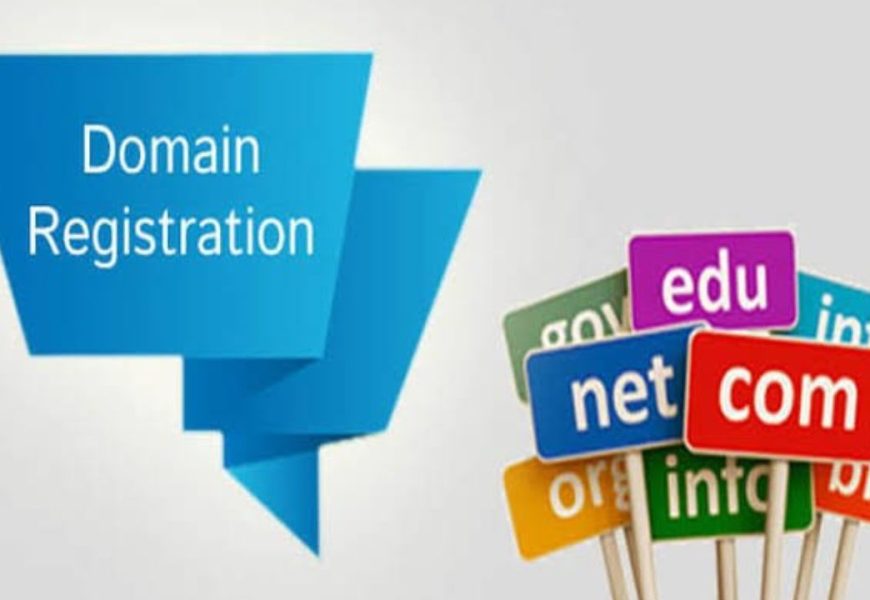In today’s digital landscape, owning a website or having an online presence is essential for individuals, businesses, and organizations. The first step to creating that online presence is often the registration of a domain name. But for those new to the process or looking to minimize costs, the question arises: Can I register a domain for free?
The short answer is that, yes, you can register a registration domain com for free in certain situations. However, it comes with limitations, restrictions, and potential downsides that you need to consider. This article will explore the different ways you can register a domain for free, the pros and cons of doing so, and what alternatives are available for those who want more control over their online brand.
Understanding Domain Names
Before diving into the specifics of free domain registration, it’s essential to understand what a domain name is and why it matters.
A domain name is essentially the address of your website on the internet. It’s the unique string of characters that people use to access your website in their browser, such as www.example.com. A domain name makes it easier for people to remember and find your website rather than relying on a long and complicated IP address.
Ways to Register a Domain for Free
Now, let’s explore the ways you might be able to register a domain for free.
1. Free Domain with Web Hosting Services
Many web hosting companies offer free domain registration as part of their hosting plans. These deals are generally aimed at individuals and small businesses who are just starting and need an affordable solution to get their website up and running.
Popular Hosting Providers Offering Free Domain Registration:
- Bluehost: Often includes a free domain for the first year when you purchase a hosting plan.
- Hostinger: Offers a free domain with specific hosting packages.
- DreamHost: Includes free domain registration for some hosting packages.
2. Free Subdomains from Website Builders
If you’re just looking to get a website online with minimal investment, several website builders provide a free subdomain as part of their free plans. A subdomain is a domain that is a part of a larger domain.
For example, if you use a platform like Wix, Weebly, or WordPress.com, you can get a free subdomain that looks something like this: yoursite.wixsite.com or yourname.wordpress.com.
3. Free Domains with Country-Specific Extensions
Certain countries or organizations may offer free domain registrations with specific country code top-level domains (ccTLDs), such as .tk, .ml, .ga, and others. These free domains are usually available through services like Freenom.
Freenom offers free domain registration for the following extensions:
- .tk
- .ml
- .ga
- .cf
- .gq
4. Educational and Nonprofit Domain Extensions
Some educational and nonprofit organizations might be able to access free domain registration through partnerships or special programs. For instance, educational institutions often get access to certain free services that include domains, or students might be able to register a free domain for academic projects.
5. Open-Source and Community Domains
In some cases, certain open-source projects and community-driven initiatives can receive free domain registration. Organizations and projects within the open-source community can sometimes apply for free domains, either through foundations or partnerships that encourage the development of technology for the public good. However, this usually doesn’t extend to general users who are simply looking for personal or business domains.
The Drawbacks of Free Domains
While registering a domain for free may seem like an attractive offer, it’s essential to understand the limitations and potential drawbacks that come with these services.
1. Lack of Control
With free domains, especially those provided by subdomain services or lesser-known domain extensions, you often have limited control. For instance, free subdomains are generally tied to the website builder’s platform. If the platform experiences technical issues or if you want to move to a different host, you may not be able to easily transfer the domain.
2. Branding Limitations
A free domain, especially a subdomain, often comes with a lack of professional branding. If you’re looking to establish a legitimate business or personal brand, using a free subdomain or a less-recognized domain extension may make your website look unprofessional and less credible.
Additionally, free domains that come with branding (e.g., yourwebsite.wordpress.com) may reduce your trustworthiness in the eyes of visitors. For businesses and serious projects, investing in a custom domain can be essential for building trust and authority online.
3. Limited Features
Free domain services often come with very limited features. For instance, free domain extensions (like those from Freenom) often do not offer the same technical features and support as paid domains. This might include a lack of security features (like SSL certificates), or restrictions on DNS management and email setup.
4. Risk of Losing Your Domain
With certain free domains, particularly those from third-party providers like Freenom, there’s always the risk of losing your domain if the service decides to revoke it. Providers can take back free domains at any time, which can cause your website to go offline or disrupt your business. This is something you won’t have to worry about with paid domains.
5. SEO and Visibility
Although free domains (especially subdomains) won’t necessarily hinder your SEO efforts, they may not be as effective as custom domain names when it comes to search engine optimization. Google and other search engines tend to prioritize well-established, professional-looking websites over those with free subdomains or less popular domain extensions. This could negatively affect your website’s visibility and ranking.
Alternatives to Free Domain Registration
If you’re serious about building a website and establishing a credible online presence, it’s often worth considering alternatives to free domain registration. Here are some options:
1. Purchase a Domain Name
Purchasing a domain name typically costs between $10 and $20 per year, depending on the domain extension (.com, .org, etc.). This is a relatively small investment, and it gives you full control over your domain, along with the ability to choose a professional and memorable name.
2. Discounted Domain Services
If the cost of domain registration is a concern, some domain registrars offer discounted or promotional pricing for the first year. For example, services like Namecheap, GoDaddy, and Google Domains often provide attractive discounts for new customers, making it affordable to register a domain at a low price.
3. Bundle Domain with Hosting
As mentioned earlier, many hosting providers offer a free domain for the first year when you purchase a hosting plan. If you’re planning to launch a website anyway, this can be a cost-effective option that gives you both a hosting plan and a domain at a competitive price.
4. Nonprofit or Educational Discounts
For nonprofits or educational projects, you may be eligible for discounts or even free domains through certain programs. Check with organizations like or other relevant nonprofit support agencies to see if you qualify for special domain offers.
Conclusion
While it is possible to register a domain for free, there are often significant limitations and risks associated with these services. Free domains, particularly those from website builders or lesser-known extensions, may not offer the control, branding, or reliability required for a professional website.









